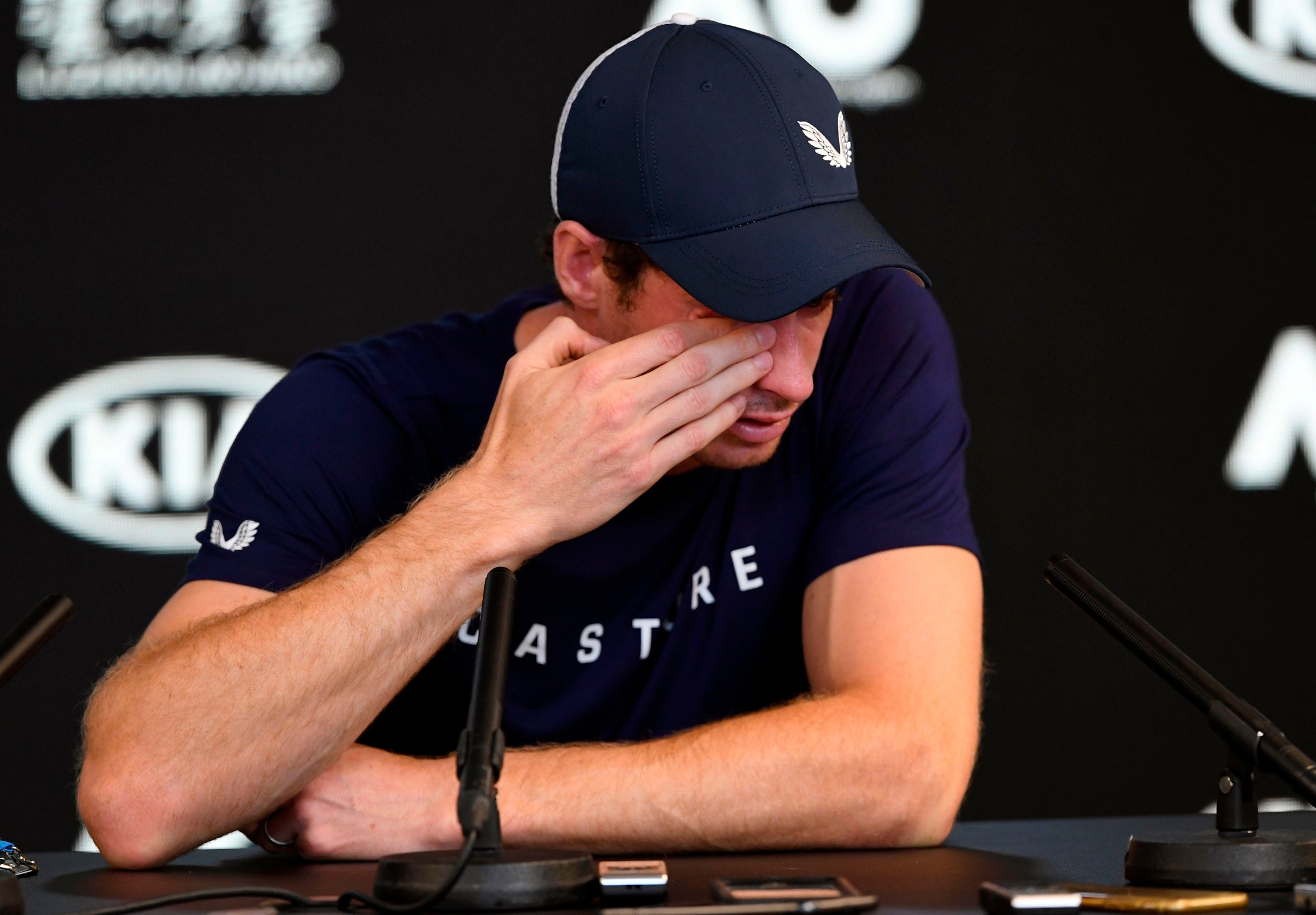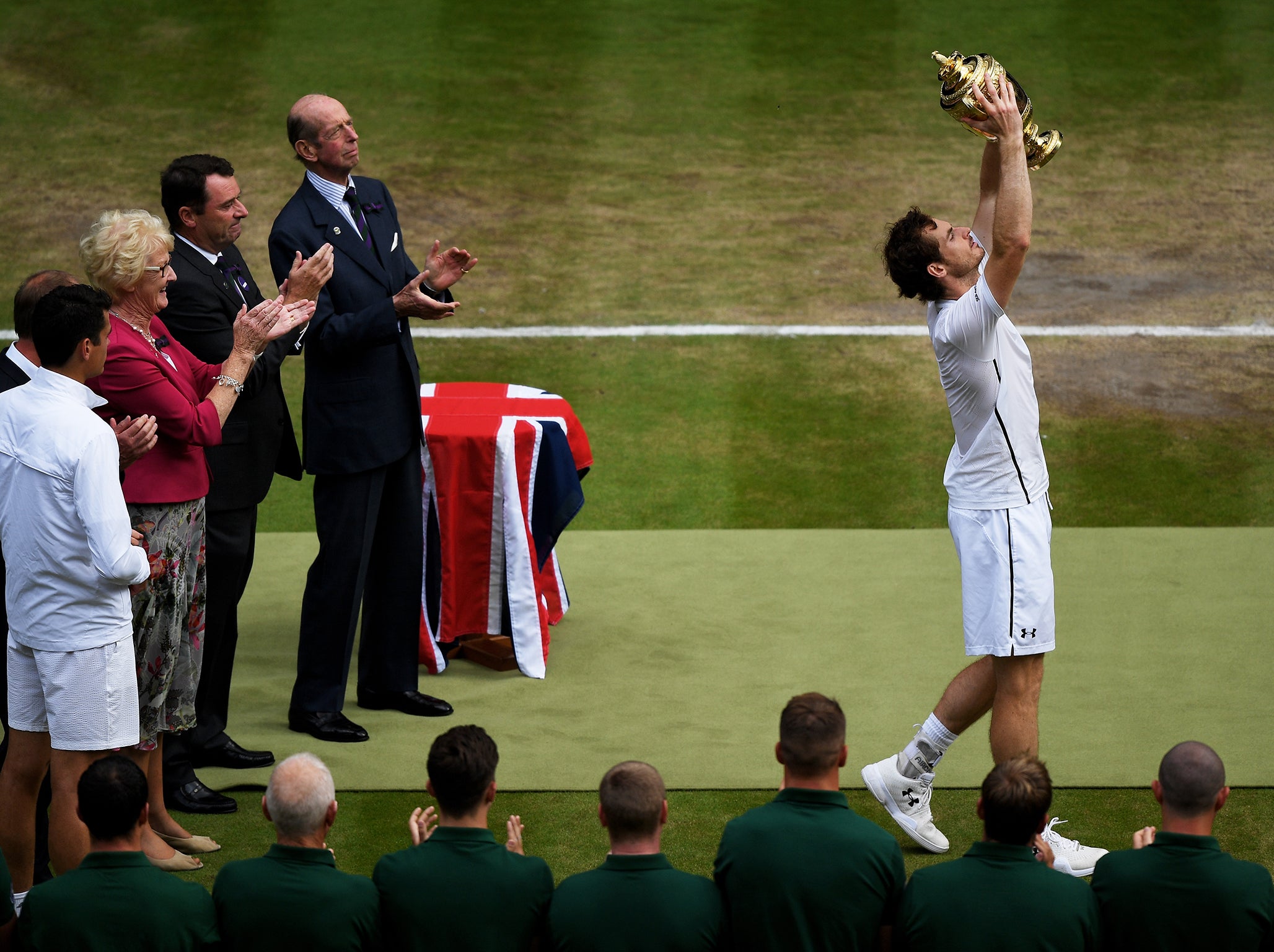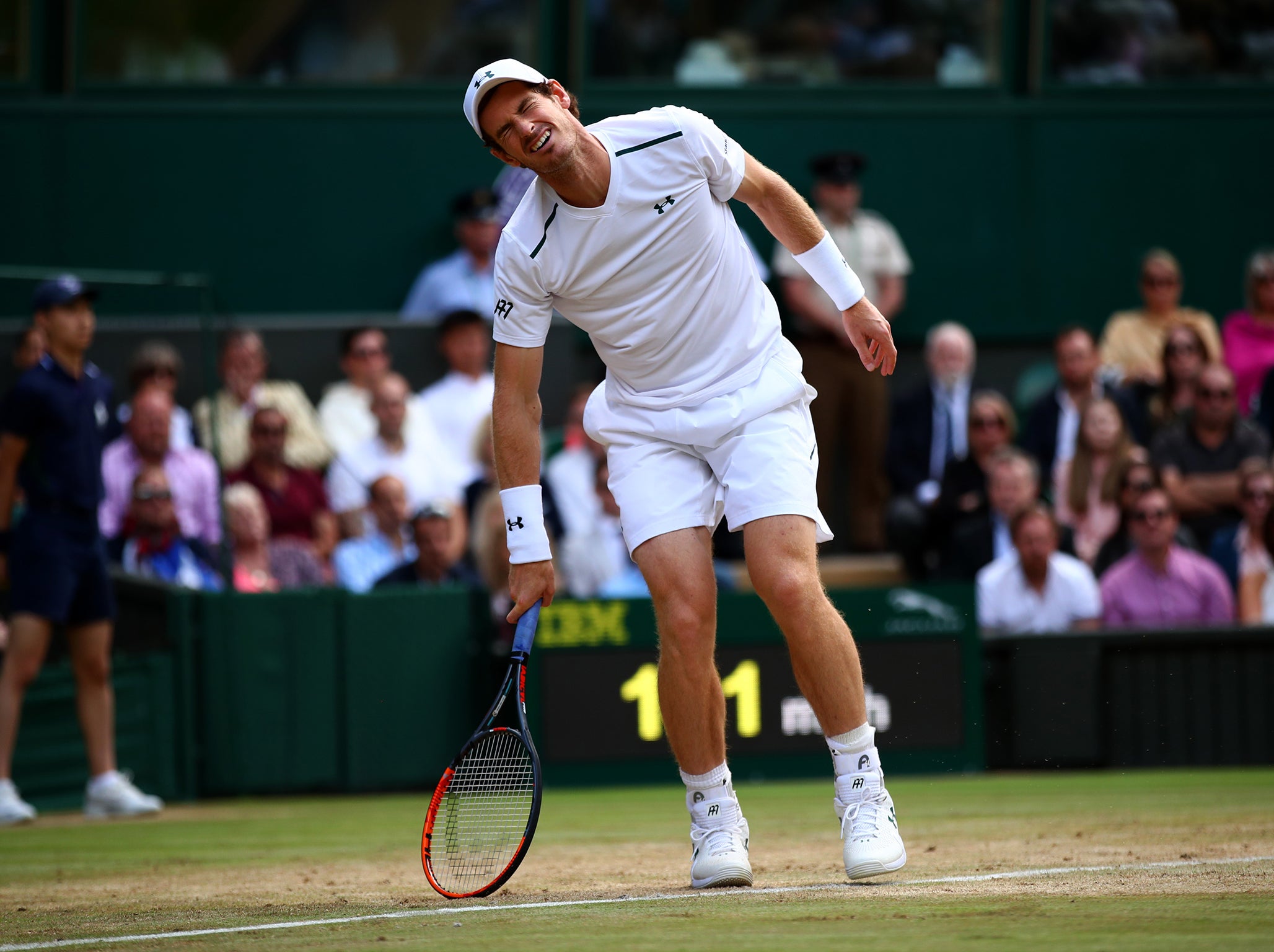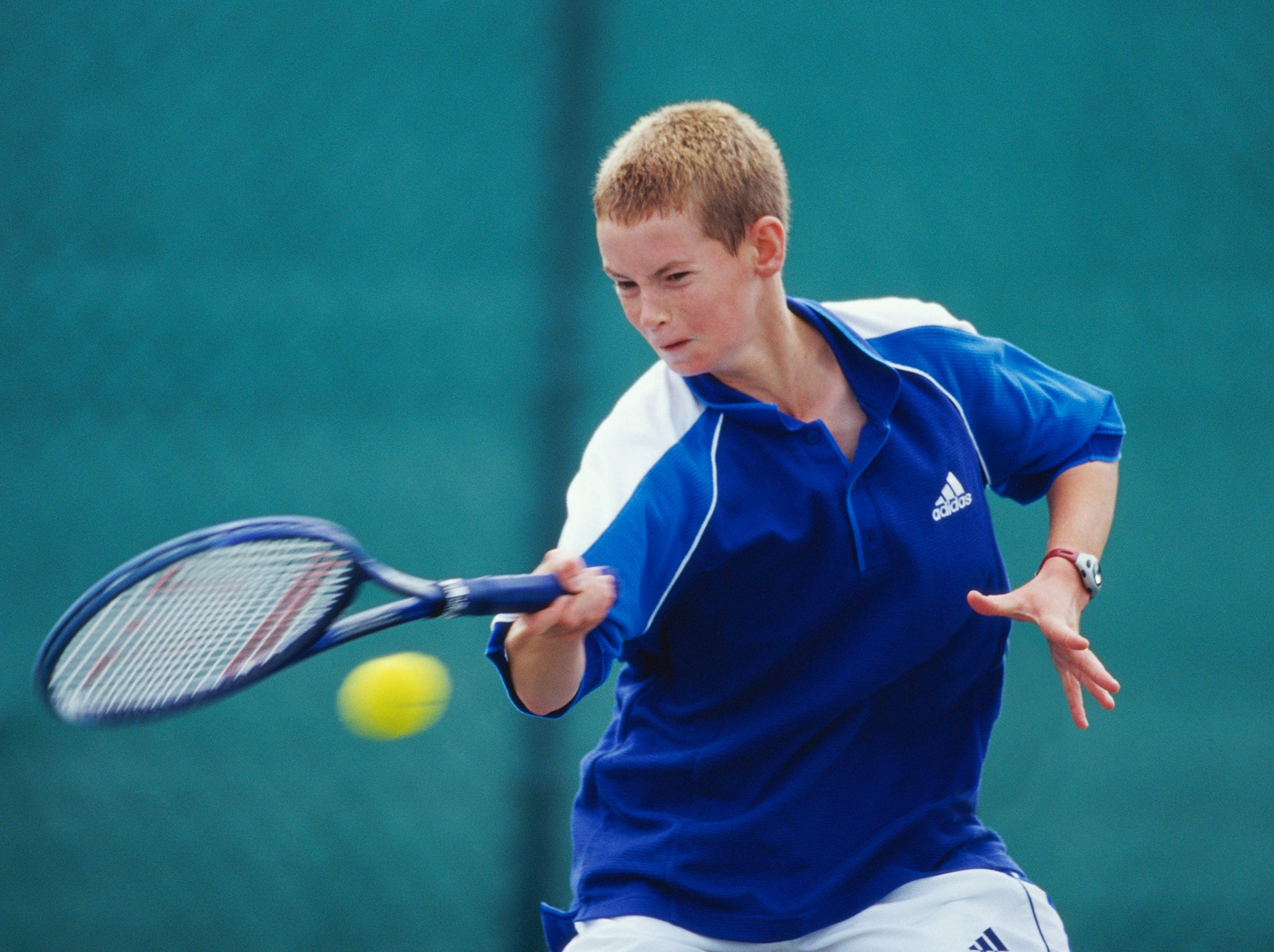Andy Murray opens up on ‘helplessness’ in Novak Djokovic practice which cemented retirement plans
Murray had decided last month to make this summer’s Wimbledon his farewell tournament but now admits that he might not play again after the Australian Open, which begins here on Monday

Your support helps us to tell the story
From reproductive rights to climate change to Big Tech, The Independent is on the ground when the story is developing. Whether it's investigating the financials of Elon Musk's pro-Trump PAC or producing our latest documentary, 'The A Word', which shines a light on the American women fighting for reproductive rights, we know how important it is to parse out the facts from the messaging.
At such a critical moment in US history, we need reporters on the ground. Your donation allows us to keep sending journalists to speak to both sides of the story.
The Independent is trusted by Americans across the entire political spectrum. And unlike many other quality news outlets, we choose not to lock Americans out of our reporting and analysis with paywalls. We believe quality journalism should be available to everyone, paid for by those who can afford it.
Your support makes all the difference.Andy Murray admitted after announcing his impending retirement here on Friday that he had felt “helpless” on the court during his Australian Open practice match against Novak Djokovic 24 hours earlier.
Djokovic was leading 6-1, 4-1 when the match finished because they had run out of time, but Murray said it was not the score that had concerned him.
“It was the feeling that I had during the practice, of how I’m able to play like I am in the state that I’m in,” Murray said. “You just feel helpless on the court - and it sucks.
“I’ve played I don’t know how many hours of tennis against Novak here over the years. I haven’t won the matches, but most of them have been really tough, physical matches.
“Although I didn’t win, the competitiveness was always there, but yesterday there was none of that and there was no feeling of rivalry. I was just not happy with the way I felt on court.”
Murray, who has had hip problems for several years, has struggled to recover from the injury he suffered two summers ago at the French Open. He had surgery on his right hip here last January, but has continued to experience pain throughout his rehabilitation.
It was after playing a practice match against Fernando Verdasco during his training camp in Miami last month that Murray told his team that he could not continue in such a state indefinitely and would aim to finish his career at Wimbledon this summer.
Murray said that he had still been in pain throughout his comeback matches last summer but had hoped that he would feel better after a lengthy period of rehabilitation in Philadelphia in the autumn.
“Then I went to Miami and the hope was that after a period of rehab and then progressively building up to playing practice matches against good players, I would be in a better place,” he said.
“On the third day I was playing practice sets and my hip was hurting and I was in pain. As the practice went on, it was getting worse.
“I was like: ‘I can't do this. What I am doing this for? The same sequence is happening: as soon as I start to increase my tennis load and competing and playing matches, the pain gets worse and my performance drops and I have to take a rest for a few days.’ The same thing was happening. It was enough.”
“I had tears in my eyes and said: ‘My hip is killing me. I shouldn't be continuing to go through that for nothing any more’.”

Murray had decided last month to make this summer’s Wimbledon his farewell tournament but now admits that he might not play again after the Australian Open, which begins here on Monday.
The Scot admitted there had been other times during the year when he had talked about quitting. “I was in too much pain, wasn't enjoying it,” he said. “It didn't feel like the surgery had worked. I had been advised after having the hip operation that things can improve after up to a year to 18 months.
“In terms of the surgery, I was advised: ‘Wait and see how that goes.’ When I went off to Philadelphia and did different rehab it helped and improved things to a point in terms of my function and things I was able to do, but my hip doesn’t recover from matches or training any more.
“In Brisbane [last week] I felt OK in the first match: not amazing, just OK. But the next day, I felt quite a bit worse. Obviously, as a tournament goes on, the pain gets worse, so my performance drops. There's no possibility for me to do well.”

Murray knows that he will need further surgery. “My hip needs to be replaced at some stage,” he said. “It's badly damaged. But it was also badly damaged before I started having the issues with it. It's something I'd always managed.
“It was always a feeling for me that this is something I've dealt with for a very long time. If I can reduce the pain, it's something I'll be able to compete with. I'd always had hip issues ,but it just got to a point where it just wouldn't really improve from there.
“I can't damage my hip more by playing. Obviously, it will get worse but there are operations that will fix that. If I stopped playing tennis today, I would seriously be considering having an operation because day-to-day life is not fun. I can't do stuff I would want to do, even if I wasn't a professional athlete.
“I would want to go and play football with my friends, or go and play 18 holes of golf and enjoy doing that – whereas I can't think of anything worse than going and playing five-a-side football with my friends, because I can't kick a football.”
Murray said he was considering having a “resurfacing” operation rather than a hip replacement. “Hip resurfacing is something that has been around for 15 years and has been successful for a younger generation for people that have had issues with hips,” he said.
“It allows them to live a very active lifestyle. That is why, I think, and understand from speaking to experts, that it’s a better option for somebody of my age.
“If I was to stop playing today, that is something I would look at and consider doing because it would allow me to go and play football with my friends and play golf. It would allow me to run around a little bit more freely than with a hip replacement.

“I’m sure there are some doctors and surgeons out there who would dispute that and say a hip replacement is better, but there are quite a few athletes out there who have gone back to competing after having it done. As somebody who wants to live an active life-style, it’s a better option for me.
“It was not something I was thinking about until a week ago. I was planning on playing through until Wimbledon and that was what I wanted to do. I said: ‘I think I can manage this because I have been playing through pain for a long time and there’s no reason I can’t do it for another five months, knowing there’s an end point. I can be smart with scheduling.’
“But when I got here I thought: ‘I am tired of it and don’t really want to have another five months of that pain.’ That’s when I starting discussing having something like that done.”
Murray said he was aware how much he would miss playing tennis.

“I think it would be a lot easier for me if it was a decision that I wanted to take, and if my performance wasn’t how I wanted it and I just wasn’t as good as I was before and the young guys are better,” he said. “[In that case] challenging for big tournaments and stuff would not be possible any more.
“But because this is not something that I want to do – I don’t want to stop playing tennis just now, I don’t feel ready, the rest of my body feels perfect. - that’s the hard thing about it. It’s not like I wake up and my whole body’s sore. It’s just one problem that can’t be fixed. That’s why it’s difficult.”
Although Murray said that “at the end of the day it’s only tennis” and that “there is more to life than that”, he added: “For many reasons, it’s been more than that for me. Obviously stopping the way it’s happened doesn’t sit particularly well with me. It’s not how I would want to finish playing. I don’t think any athlete wants that. They want to go out when they decide, not have their body telling them that that is the case. That’s the hardest part of it.”
Murray said that winning Wimbledon for the second time in 2016 and carrying the national flag at the Olympics had been the best two moments of his career. He said he did not expect to be able to recreate such highs away from tennis.
“Maybe you can by taking certain substances,” he said with a smile. “But you cannot recreate the high of winning Wimbledon or winning a Davis Cup. You cannot do that. As much as the lows of losing here for a fifth time hurt, I always had that as a motivation.
“Even in the low points it was something that gave me drive and motivation to get up and work hard and do stuff. I don’t anticipate being able to replace that. Again that’s something that maybe when I finish I will be happy, living a more stable life. But I don’t think I will be ever be able to replace the highs and lows that tennis have given me.”
Join our commenting forum
Join thought-provoking conversations, follow other Independent readers and see their replies
Comments